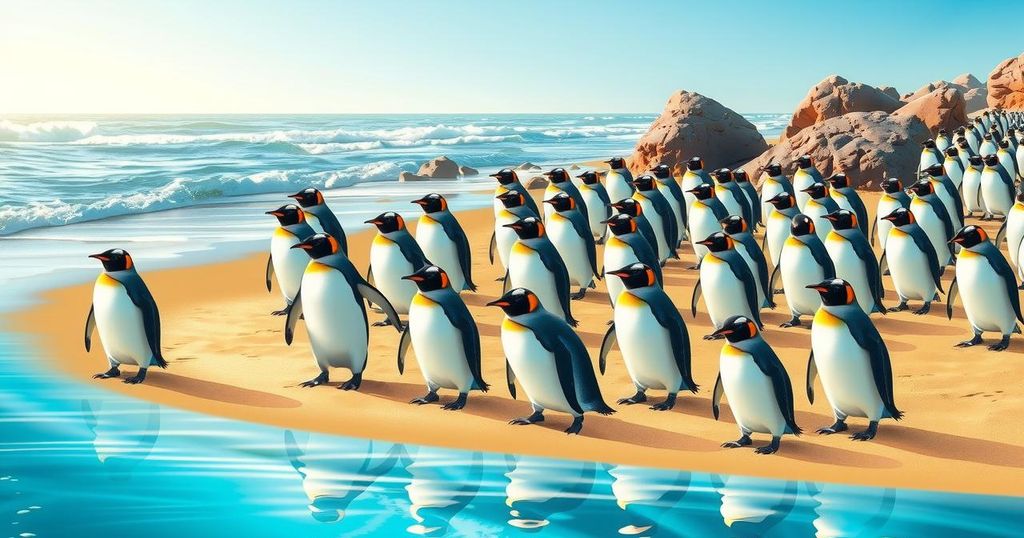South Africa’s African Penguins are valued between R2 billion and R4.5 billion, emphasizing the economic importance of conserving them. While the pelagic fishing industry provides significant economic benefits, the loss of penguins could jeopardize tourism and the country’s environmental reputation. Effective conservation strategies must include more than just fishing zone closures; they need to involve comprehensive ecosystem management to avert future declines and promote growth in penguin tourism.
Experts assert that South Africa’s African Penguins represent significant economic value, estimated at R2 billion to R4.5 billion. This value includes tourism, property benefits, education, and emotional connections people have with these animals. The decline of these penguins, now critically endangered, reflects broader environmental challenges and necessitates comprehensive protections beyond merely imposing no-fishing zones.
The pelagic fishing industry argues against expanding no-fishing zones, citing the economic contributions of R5.5 billion and approximately 5,100 jobs linked to fishing. However, it is crucial to recognize the substantial economic benefits derived from the penguin colonies themselves, which are tied to tourism and other sectors, potentially supporting up to 4,611 jobs.
Since being classified as critically endangered in October 2022, the African Penguin population has seen alarming declines, with breeding pairs plummeting from 300,000 in the 1950s to just 8,324 today. This decline is attributed to multiple human-induced pressures, including oil spills, increased fishing competition for crucial food sources, and the far-reaching impacts of climate change.
The report by Anchor Environmental Consultants, commissioned by the Endangered Wildlife Trust and other authorities, indicates that to effectively conserve the African Penguin, strategic ecosystem management is essential. This approach should consider the complex interplay between environmental health and fishing practices to avert potential ecological disasters.
Tourism related to penguins remains largely untapped, primarily benefiting two key locations: Simon’s Town and Betty’s Bay. Visitor statistics reveal a significant increase in interest, highlighting the need for further development of penguin tourism, particularly at Bird Island, which holds untapped potential. Penguins play a vital role in enhancing South Africa’s tourism appeal, ranked among the top attractions in Cape Town.
In 2008, government attempts to mitigate penguin decline through the closure of some fishing zones proved insufficient, with continuing population decreases noted in both the Western and Eastern Cape. Recent legal actions by conservation groups have sought to expand these closures further, leading to recent agreements aimed at improving protections for the penguins while balancing the interests of the fishing industry.
In conclusion, the African Penguins of South Africa are not only a critical environmental asset but also represent a substantial economic value, highlighting the need for effective conservation strategies. Protecting these colonies requires a multifaceted approach that involves tourism development, ecosystem management, and appropriately designed no-fishing zones. The ongoing decline of the penguin population underlines the urgency for collaborative efforts to safeguard this vital species and enhance its contribution to the South African economy.
Original Source: groundup.org.za






